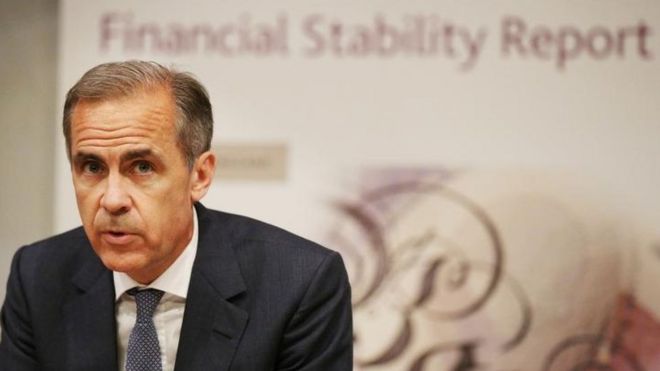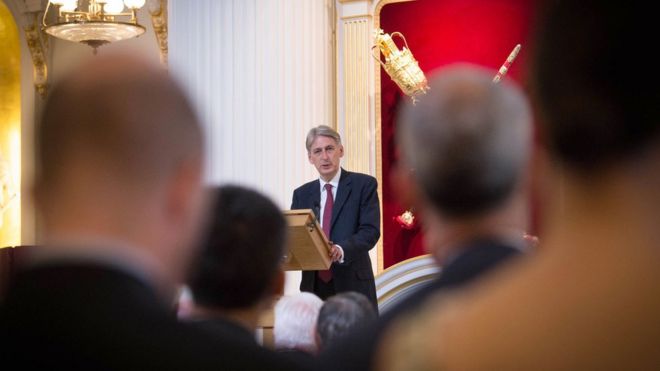A man (3rd L) looks at an electronic stock quotation board as passers-by walk past, outside a brokerage in Tokyo, Japan January 20, 2016. REUTERS/Toru Hanai
| SINGAPORE
The dollar extended its losses on Friday as major central banks signalled that the era of cheap money was coming to an end in a boon to sterling, the euro and the Canadian dollar, while Asian shares were hit by dismal performances of European and U.S. markets.
European markets were set to open a little lower, with financial spreadbetter LCG expecting Britain's FTSE 100 .FTSE, Germany's DAX .GDAXI and France's CAC 40 .FCHIto all start the day down 0.1 percent. All three lost between 0.5 percent and 1.9 percent on Thursday.
But global stock market indexes are set for more gains by the end of this year, driven by an economic revival in Europe and bright prospects for much of Asia, a Reuters poll of around 300 financial professionals showed.
The dollar index .DXY fell 0.1 percent to 95.549, poised for a 1.8 percent slide this week, having fallen in all sessions but one. It is down 1.4 percent for the month, and 4.8 percent for the quarter.
The Korean won weakened against the dollar after the country reported industrial production rose by 0.2 percent in May from a month earlier, missing expectations for growth of 1.5 percent. That followed a 2.2 percent decline in April
The dollar was up 0.1 percent at 1,142.5 won KRW=KFTC.
But the greenback remained lower against other major currencies. Adding to the dollar's weakness against the yen was data showing Japanese core consumer prices rose 0.4 percent in May from a year earlier in its fifth straight month of gains, although inflation remains well below the central bank's 2 percent target.
The dollar fell 0.25 percent to 111.95 yen, after losing 0.2 percent on Thursday. It was heading for a 1.2 percent gain for the month, but is down 4.2 percent this year.
Bank of England Governor Mark Carney surprised many on Wednesday by conceding a rate hike was likely to be needed as the economy came closer to running at full capacity.
Sterling GBP=D3 was 0.1 percent higher on Friday at $1.3017, adding to Thursday's 0.6 percent gain.
Two top policymakers at the Bank of Canada also suggested they might tighten monetary policy there as early as July.
The dollar slipped 0.15 percent to C$1.2984 CAD=, extending Thursday's 0.26 percent loss.
Despite comments by sources that European Central Bank President Mario Draghi had intended to signal tolerance for a period of weaker inflation, not an imminent policy tightening, the euro on Friday revisited the 13-month high of $1.1445 hit on Thursday.
The euro EUR=EBS remained close to that level and was at $1.1439 on Friday, retaining most of Thursday's 0.6 percent gain.
"Obviously there's a shift afoot. It really seems that there's some coordinated effort going on out here among the G10 central banks," said Stephen Innes, head of trading in Asia-Pacific for OANDA in Singapore, referring to the series of hawkish-sounding comments on monetary policy.
In stocks, the MSCI's broadest index of Asia-Pacific shares outside Japan .MIAPJ0000PUS fell 0.7 percent, after hitting a two-year high on Thursday. It is up 5.3 percent for the quarter and has risen 18.3 percent this year.
The negative sentiment infected Chinese shares despite surveys showing activity in the country's manufacturing and services sector accelerated in June from the previous month. Manufacturers appeared to enjoy strong external demand, as new orders and production rose at a solid pace.
Hong Kong's Hang Seng .HSI slid 0.9 percent.
Japan's Nikkei .N225 tumbled 1.2 percent, shrinking its monthly gain to 1.7 percent. It is up 4.5 percent this year.
Overnight, the tech-heavy Nasdaq .IXIC led declines on Wall Street with a 1.4 percent loss. The Nasdaq is poised to post a 0.9 percent loss for the month, but is still up 14 percent this year.
The drop in tech stocks overnight was due to a rotation into bank shares, which have lagged this year, after the biggest U.S. banks revealed buyback and dividend plans that beat analysts' expectations after the Fed approved their capital proposals in its annual stress test program.
The S&P financials index .SPSY rose as much as 2 percent overnight, while the S&P technology index .SPLRCT fell as much as 2.7 percent.
In commodities, oil prices continued their recovery this week on a decline in weekly U.S. crude production.
U.S. crude CLc1 added 0.7 percent to $45.15 a barrel in its seventh straight session of gains, bringing its weekly increase to 5.05 percent, and narrowing its quarterly loss to 10.75 percent.
Global benchmark Brent LCOc1 gained 0.6 percent to $47.67 a barrel, poised to post a 9.8 percent for the quarter.
The dollar's weakness this year has been a boon for gold, which is up 8.25 percent in the same period. It was up 0.1 percent at $1,246.46 an ounce on Friday.
(Reporting by Nichola Saminather; Additional reporting by Masayuki Kitano; Editing by Shri Navaratnam and Christian Schmollinger)



